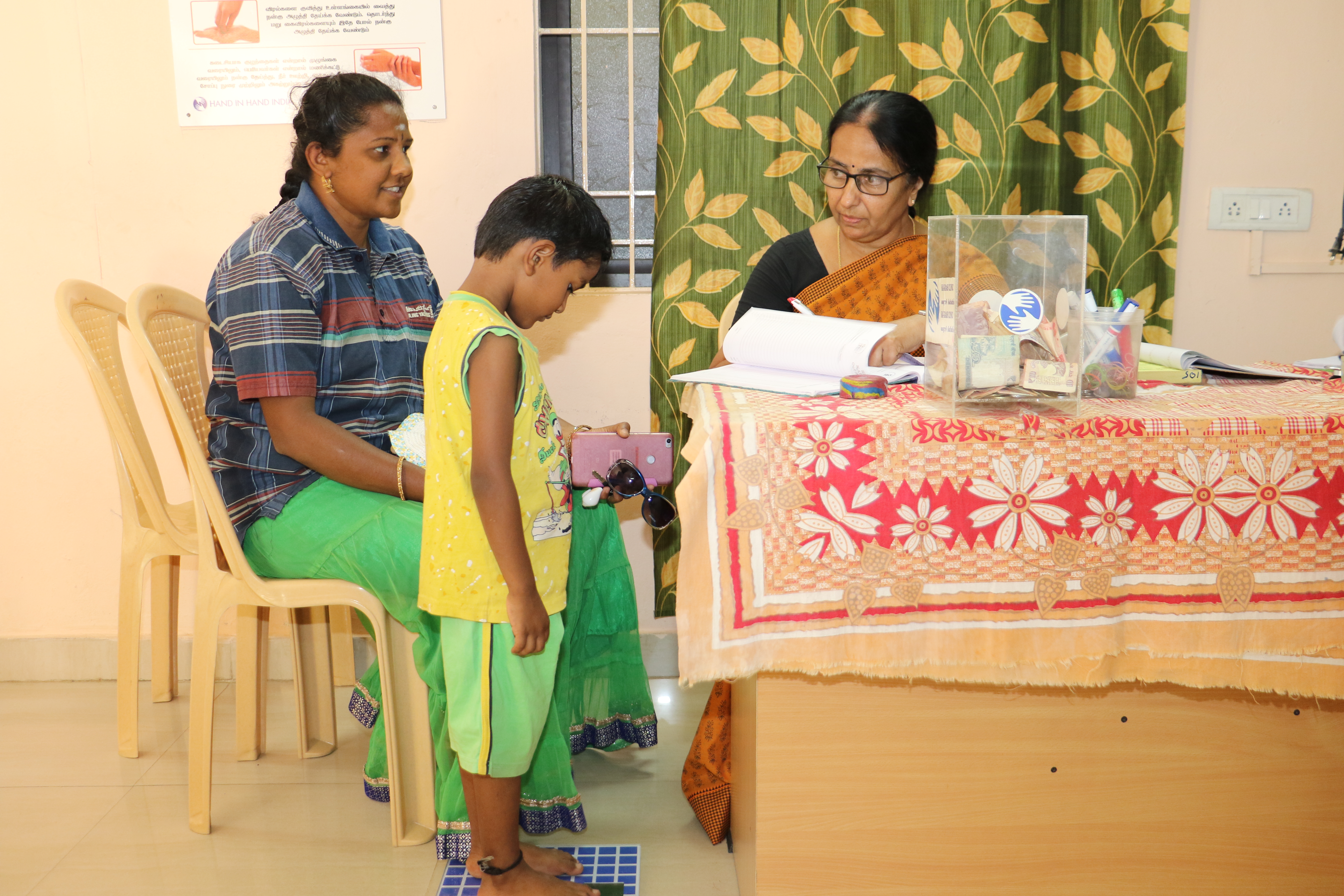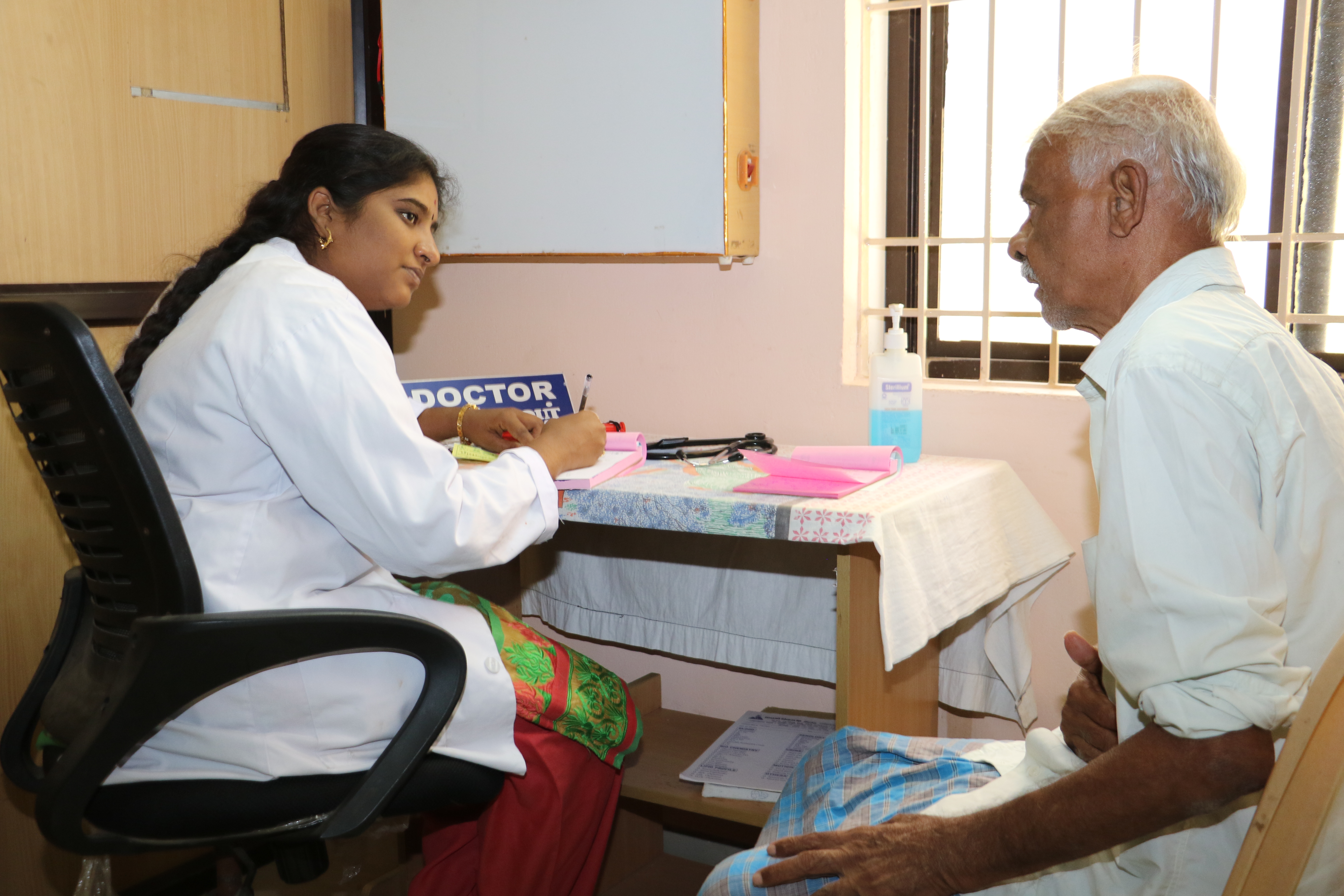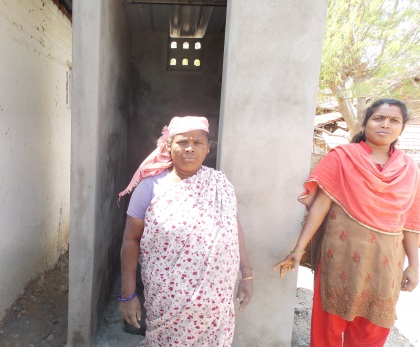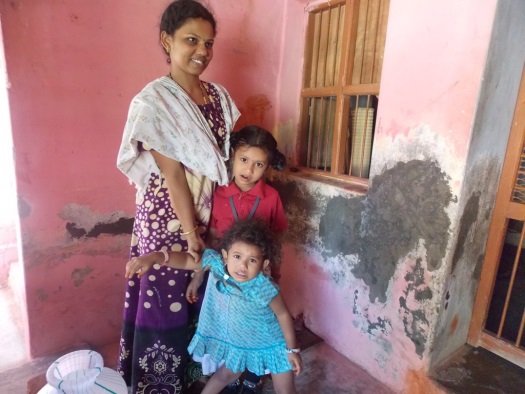Kai Raasi Clinic
Kai Raasi Clinic is a community health clinic promoted to provide basic medical services for the benefit of the people residing in villages located far from the nearest government health facility especially Primary Health Centres (PHC). Kai Raasi clinics function on the cost-recoverable-from-community basis for the clinical services provided. The clinics function five or six days in a week as agreed by the local public and Panchayat. The Kai Raasi Clinic at Kanchipuram consists of a team of qualified medical practitioners, paramedics, and counsellors to provide basic health services. The health centre does not have a diagnostic facility but helps in referring patients to the nearest medical facility for further treatment. Medicines, mostly generics, are provided to the patients free of cost. In this model, doctors and paramedics are provided transport facility besides other benefits. The clinic is also linked to a waste management agency for proper biomedical waste disposal.
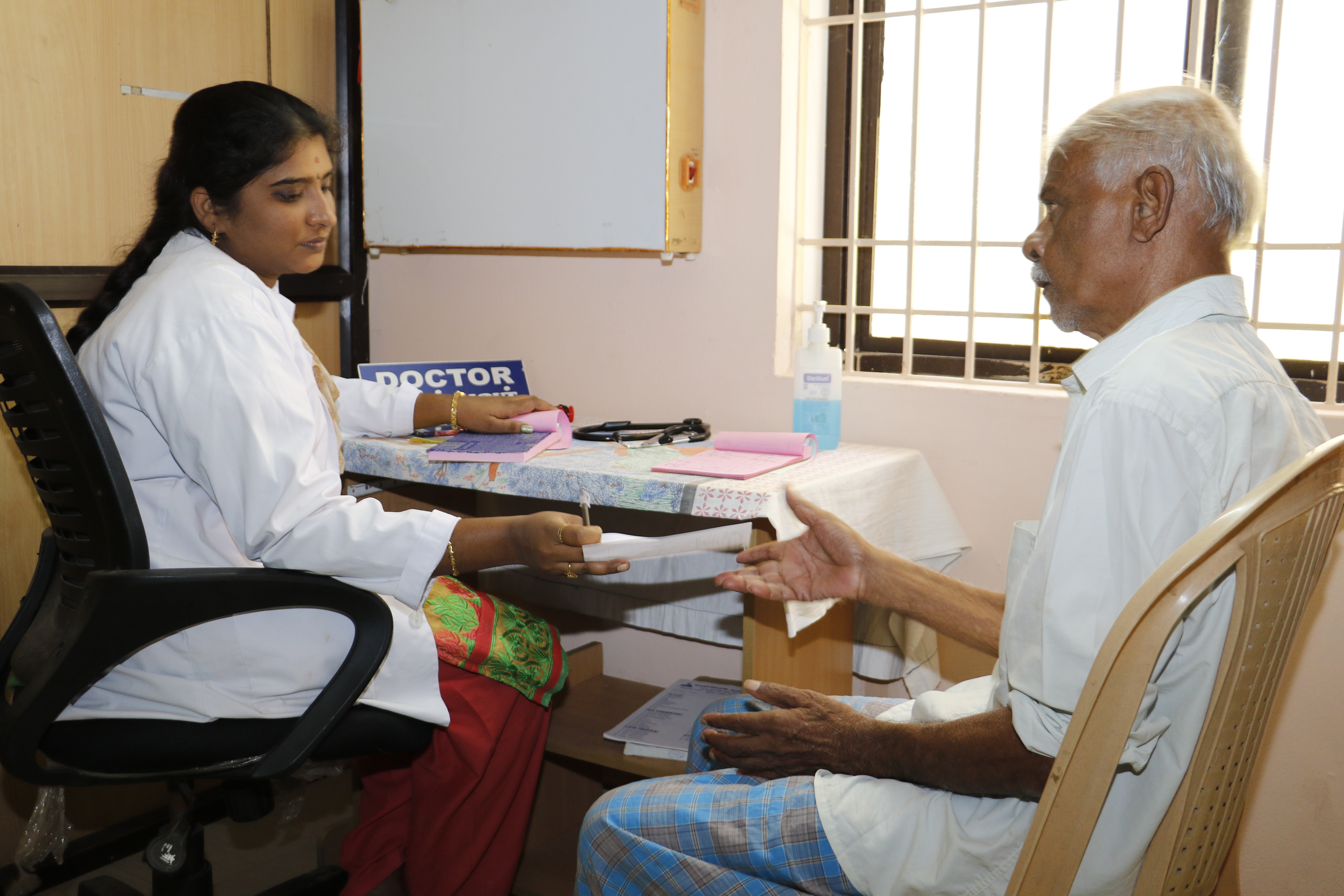
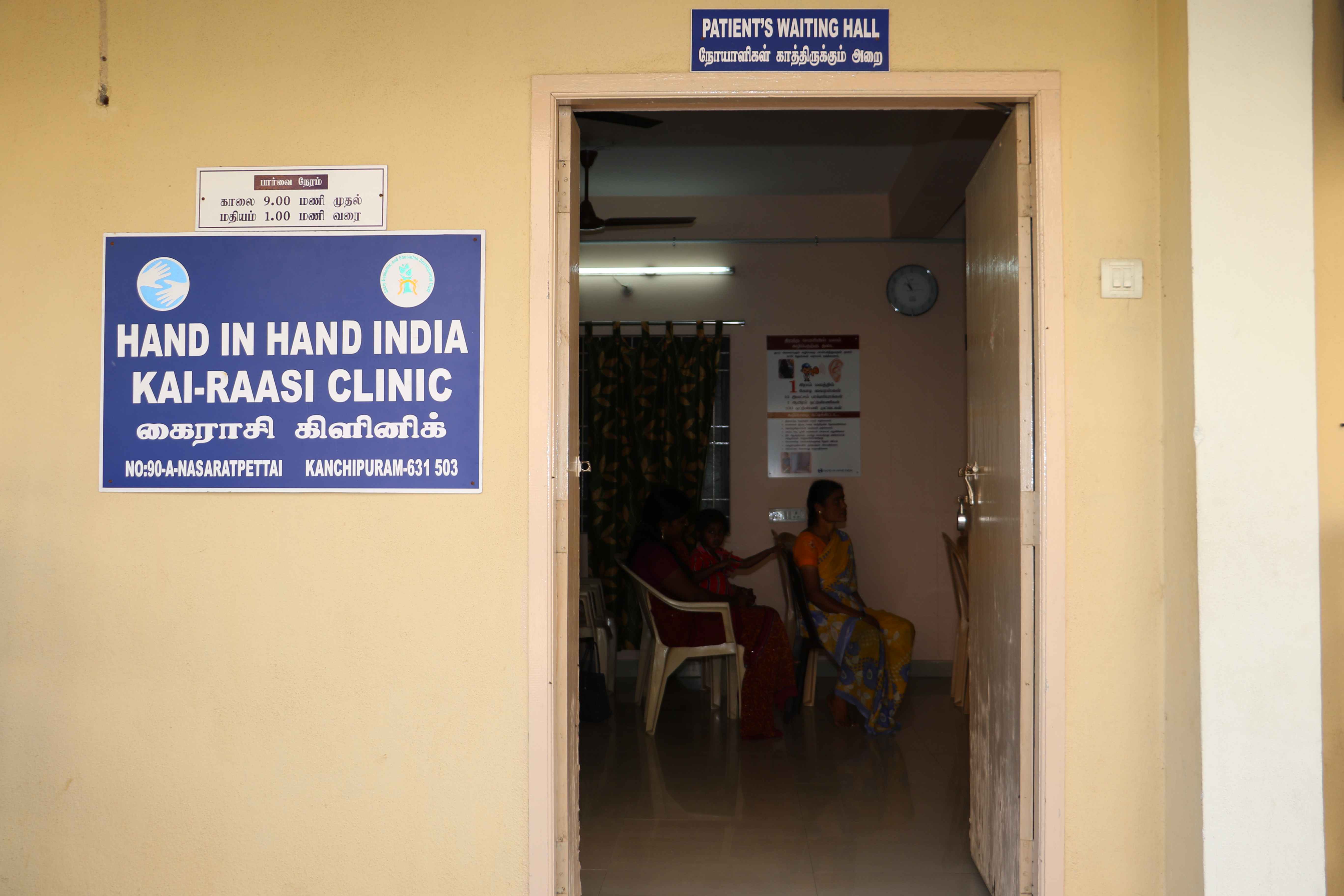
Patient Record Management: EDPS2000 – high-end software is used to assist the technician in maintaining the medical history of patients, in suggesting the tests that need to be performed, and to evaluate possible causes based on the symptoms displayed. In the case of major illnesses or when the diagnosis is not clear, the computer output will propose further tests and referrals.
Awareness: Patients visiting Kai Raasi clinic are also provided health education by the staff through posters and audiovisual demonstrations to build awareness on communicable diseases.
SHG Health Training
It is a widely held belief that if you educate a man you educate an individual, but if you educate a woman you educate a family. This is the objective of SHG health training imparted to the women by Hand in Hand India. Better awareness and emphasis on behaviour change will not only improve the morbidity profile and living conditions of the SHG women but also improve the man-day contribution to economic activity, productivity during working hours, decrease in financial shocks arising from health conditions and an increase in real income through reduced health expenses. The modules for this training are developed under the overarching framework of the UN Millennium Development Goals. The motive is to spread awareness on health and hygiene practices, bring about behaviour change to encourage health practices in their households and community at large.
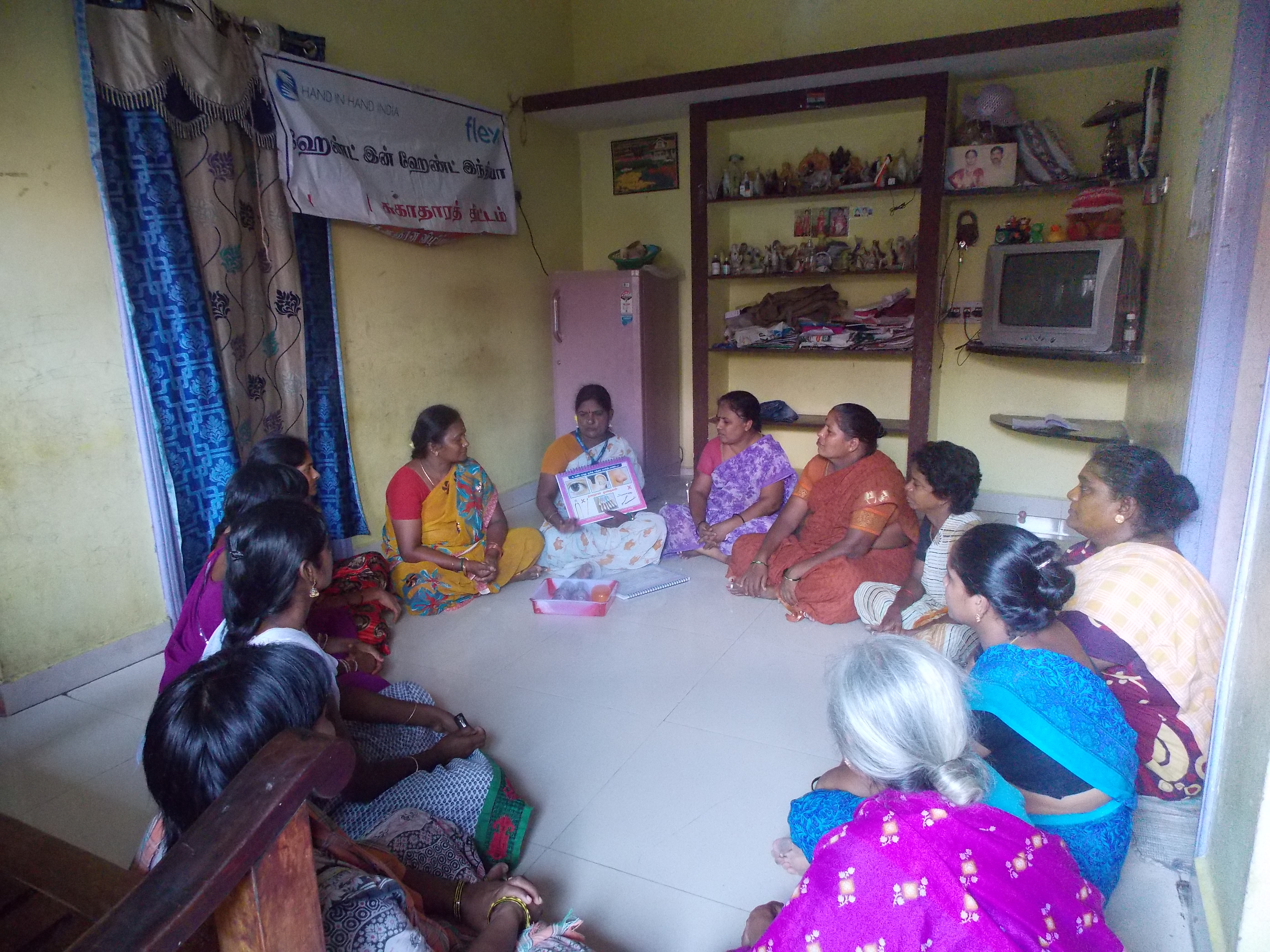
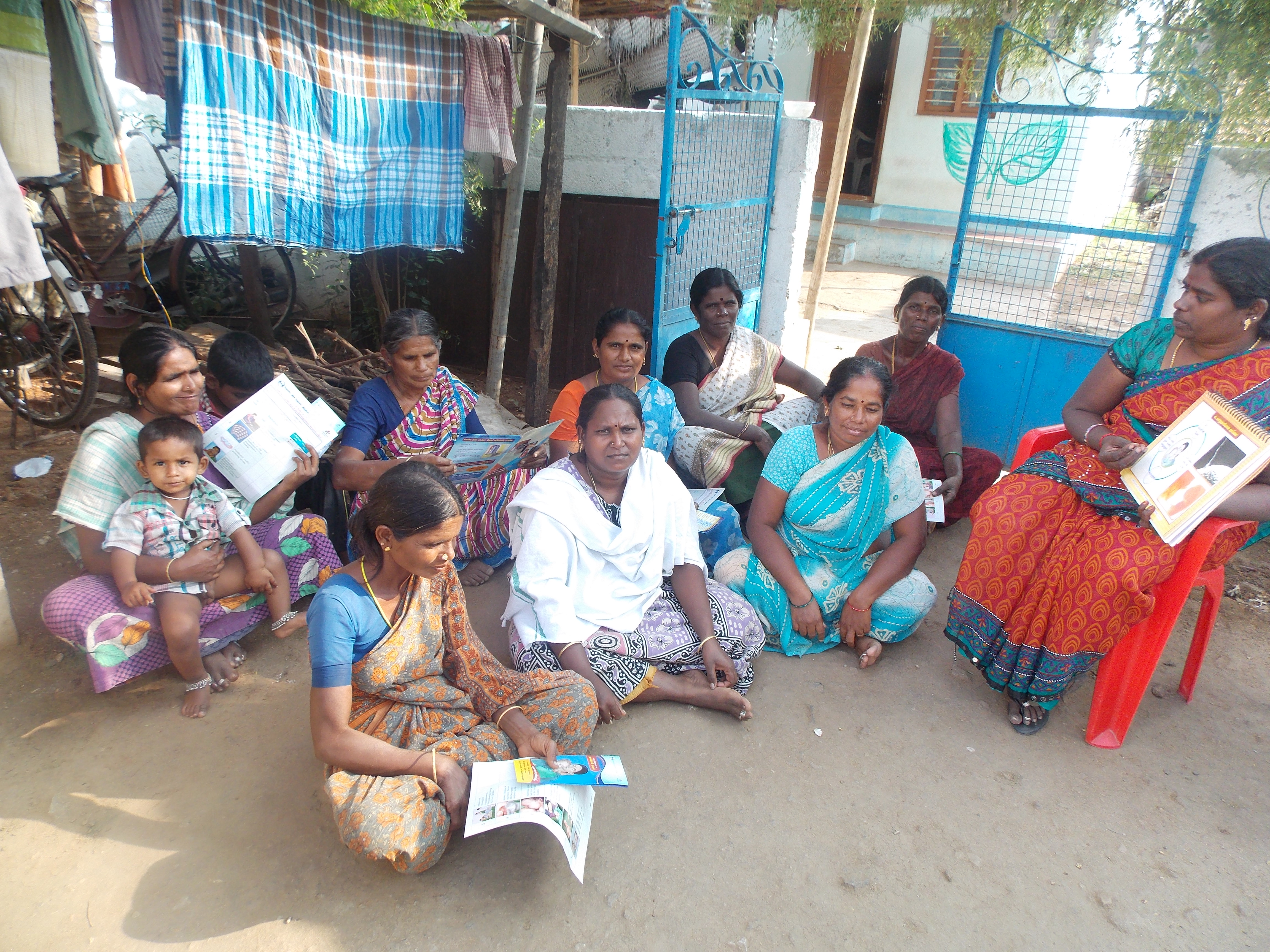
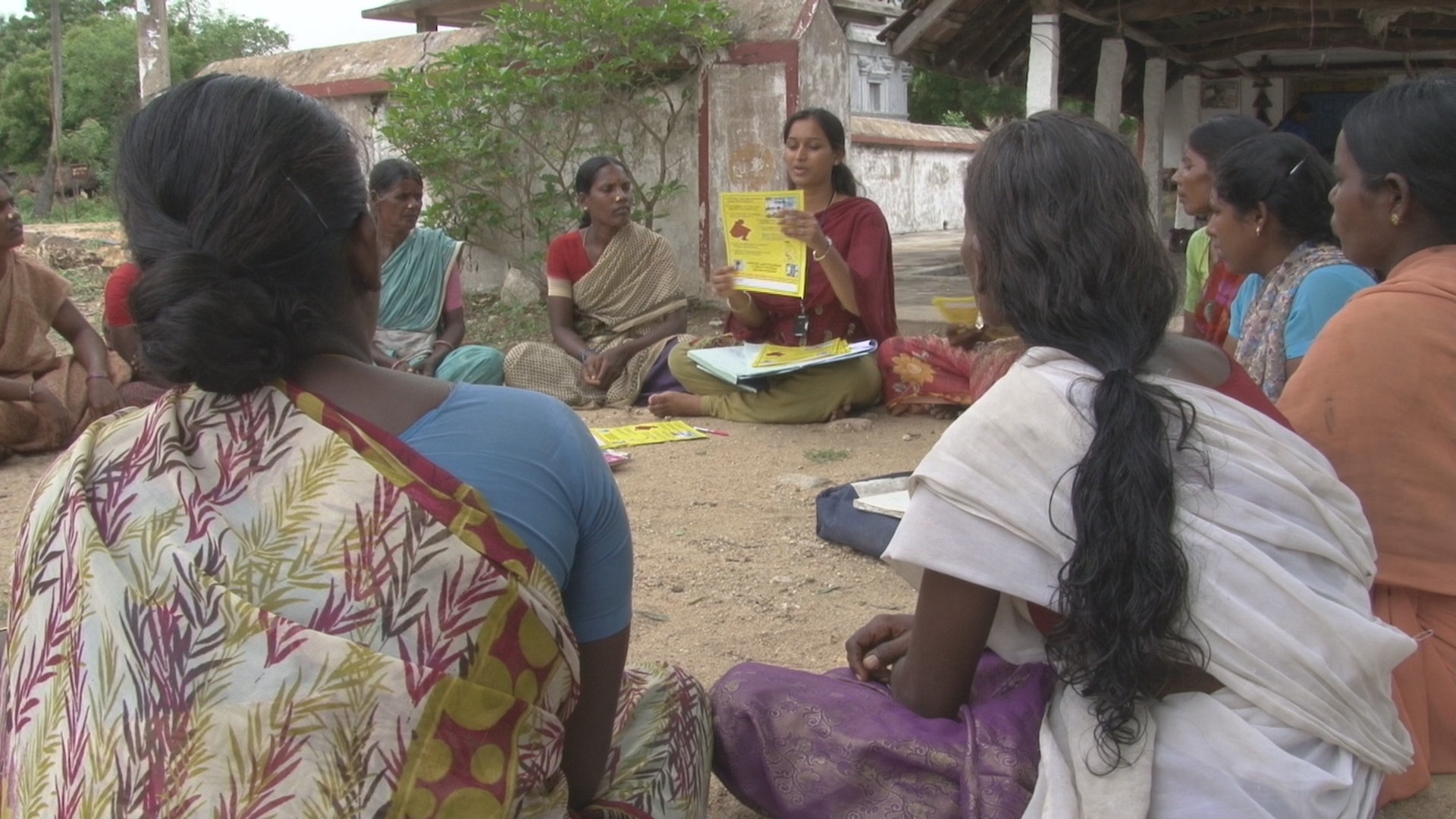
THE TOPICS COVERED UNDER TRAINING INCLUDE
Personal Hygiene & WASH (construction of toilets, its finance and usage and school sanitation safe drinking water and food practices, hand washing)
Maternal & Child Health Care (ANC, PNC, institutional health delivery and immunisation)
Anaemia & Nutrition (Nutrition during pregnancy, breastfeeding, adolescent nutrition, obesity)
Community Health (Health delivery system, role of health institutions, health rights)
The SHG training module on Health, Hygiene and Sanitation for SHG members are intended to have a great impact on the rural SHG households.
Modus Operandi: The duration of the training programme is 5 to 6 days. The duration is arrived at keeping in mind the circumstances of an average SHG woman i.e., functional literacy level/primary education, ability to spend time for training, need to attend to domestic/economic activity,



Medical Camp
In the absence of adequate medical facilities in the villages, the medical camps organised by the SEED Trust not only provides adequate medical care and attention but also provides constant health monitoring. Besides ailing people, the medical camps cater to pregnant women, adolescent girls, children from the Anganwadi and school and elderly residents. The aim of the medical camp is to provide healthcare services to meet the immediate health care needs of the marginalised community in remote rural areas through standalone camps. Customised health camps are organised extensively across the country offering comprehensive health services – curative, preventive and referral, to a large number of people in selected intervention areas. The medical camps, which works on ‘free for all’ basis ensures equal access to healthcare with state-of-the-art equipment and medical resources. So far over 5, 410 medical camps have been conducted across the several project areas and over 4,89,786 residents have benefited. Besides medical services being provided through the camps, the residents are given awareness and educational training on good and bad health practices. A counsellor accompanies the camp team and holds health education sessions while the patients await their turn to meet the doctor.
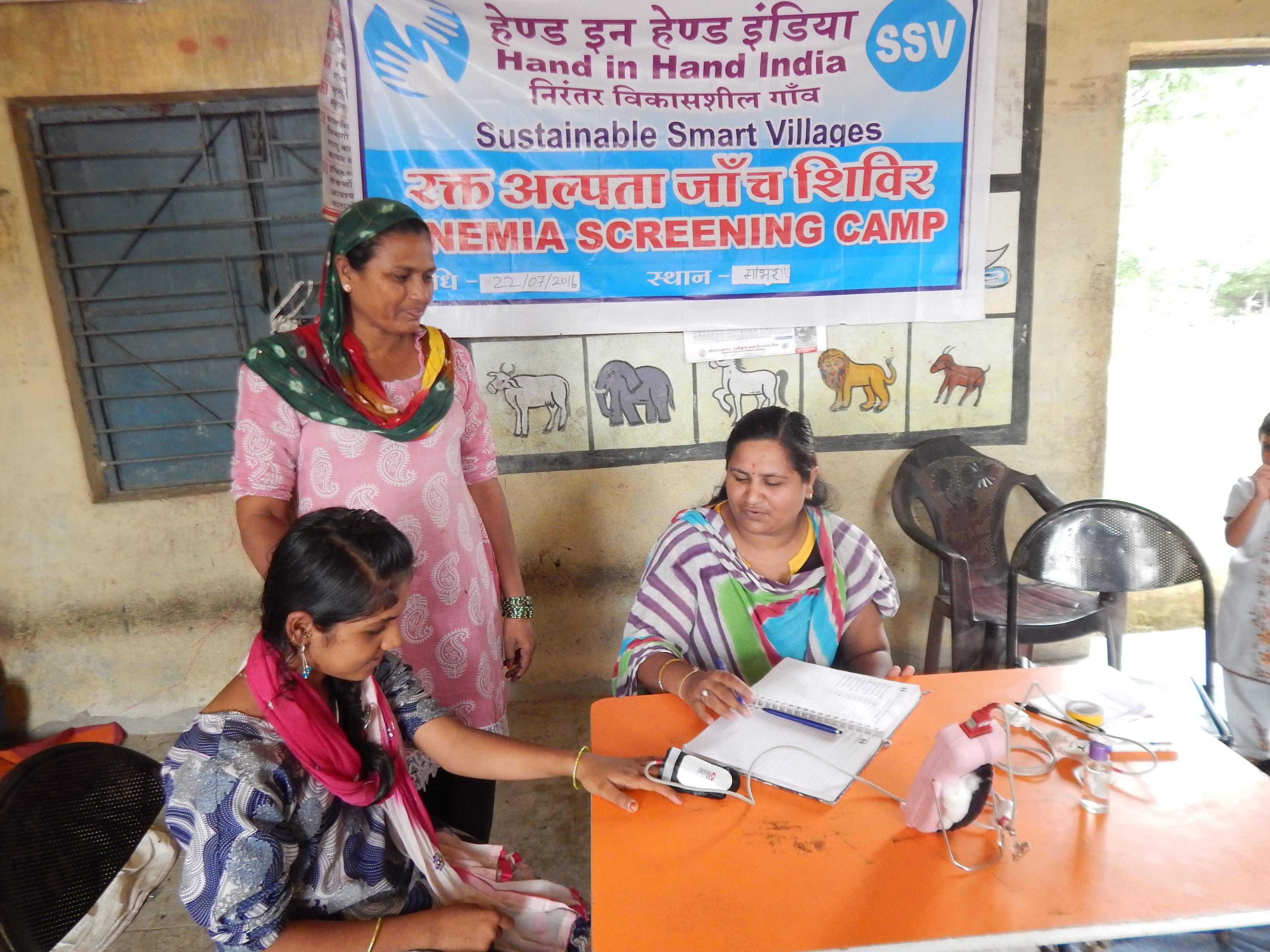
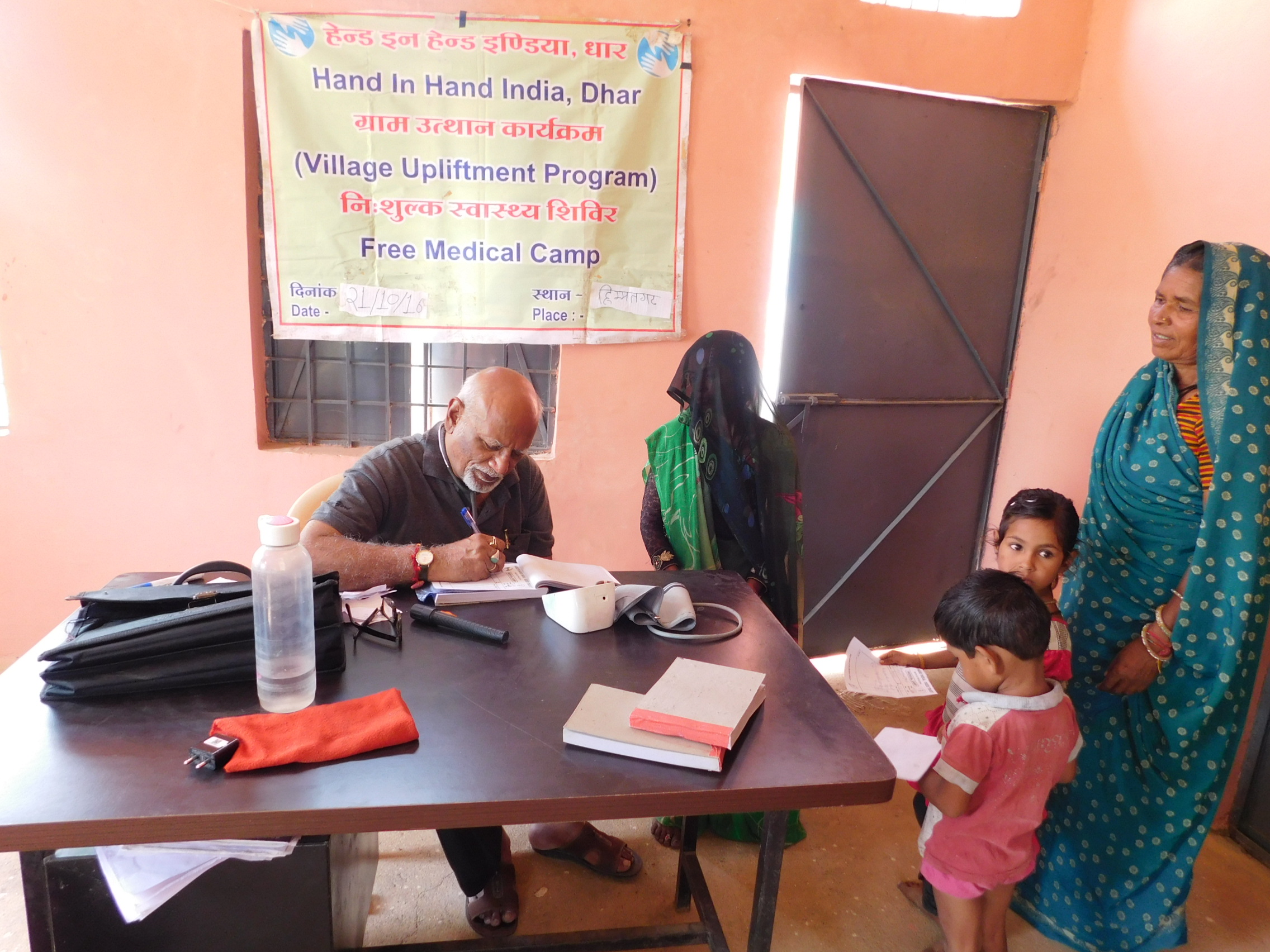
Special permission is sought from the respective government authorities; so as to avoid duplication and over coverage to villages which are also covered by the government mobile medical vans. These camps address the accessibility issues (of distance, time, cost and opportunity). They help in reducing chronicity of an ailment by getting them addressed early at their doorsteps. Specialty camps are held as per need. Multi-disciplinary camps include Gynaecology, Paediatric, Ophthalmology, Dental services etc. Medical camps are generally held for a day and the follow-up camps last for a day or two, depending on the need and the population size of the area. The medical camp team consists of a supervisor, a doctor, a nurse/pharmacist and mobilisers.
Patients are treated for simple illnesses, and cases requiring advanced medical care are referred to government-run medical institutions. These cases are revisited when the medical camp is conducted again and the progress monitored.
Follow-up is conducted by the community organisers to ensure follow-up check-up by the doctor, in case of need. Close collaboration with the government PHC and its staff is ensured. Upgradation of PHC infrastructure and/or additional equipment support is provided to the PHC. The uniqueness of the model lies in its comprehensive approach where health promotion and prevention are given equal importance while curative care is being administered.
Providing affordable nephrological services
Basic health care services continue to elude large parts of the rural India. Hand in Hand India has been bridging this critical gap through multiple interventions that provide the rural poor access to health care. Hand in Hand India has partnered with Timken Foundation and Vijay Ganga Trust to develop infrastructure and provide affordable nephrological services to rural population and create a pool of qualified dialysis technicians. Nephrological services are expensive and due to its long-term requirement (dialysis is for life unless transplantation of kidney is done) and can financially drain the family.
The project aims at establishing a state-of-the-art nephrology facility offering affordable kidney care through an 8-bed dialysis centre, an outpatient department, in-patient ward, emergency services and an in-house laboratory. A state-of-the-art training centre for technicians and nurses and a centre for preventive medicine are also in the offing.
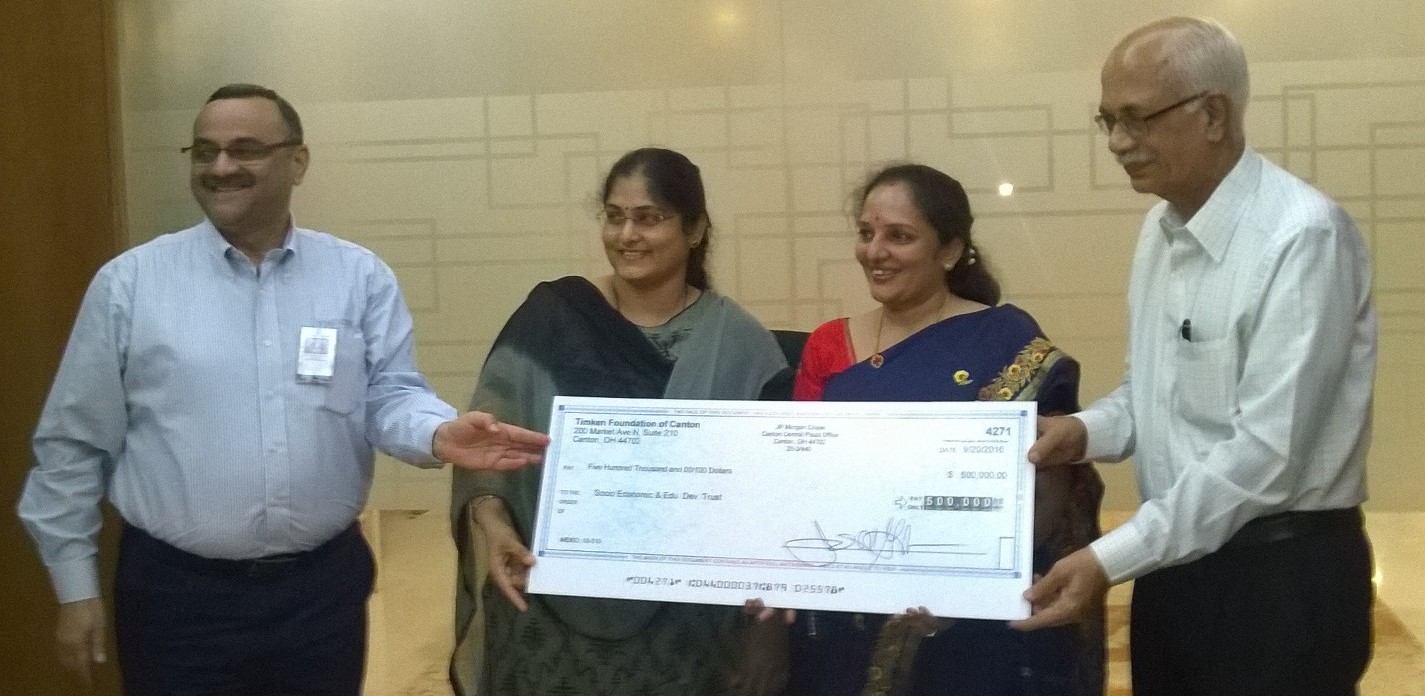
About Timken Foundation
Timken Foundation funds global health causes related to specific diseases and conditions, as well as wide-ranging global issues such as those related to women’s health.
About Vijay Ganga Trust
Vijay Ganga Speciality Care (VGSC) is non-profit organisation started in 2012, June by American Board certified Nephrologist Dr Sarita Vinod Dasari. With more than a decade of experience in early recognition, patient education, and prevention of the onset and progression of kidney and heart disease, the Trust aims to address the growing occurrence of kidney-related illnesses, improve the quality of dialysis care, and promote awareness on kidney-related disorders in the community.
Case Study
